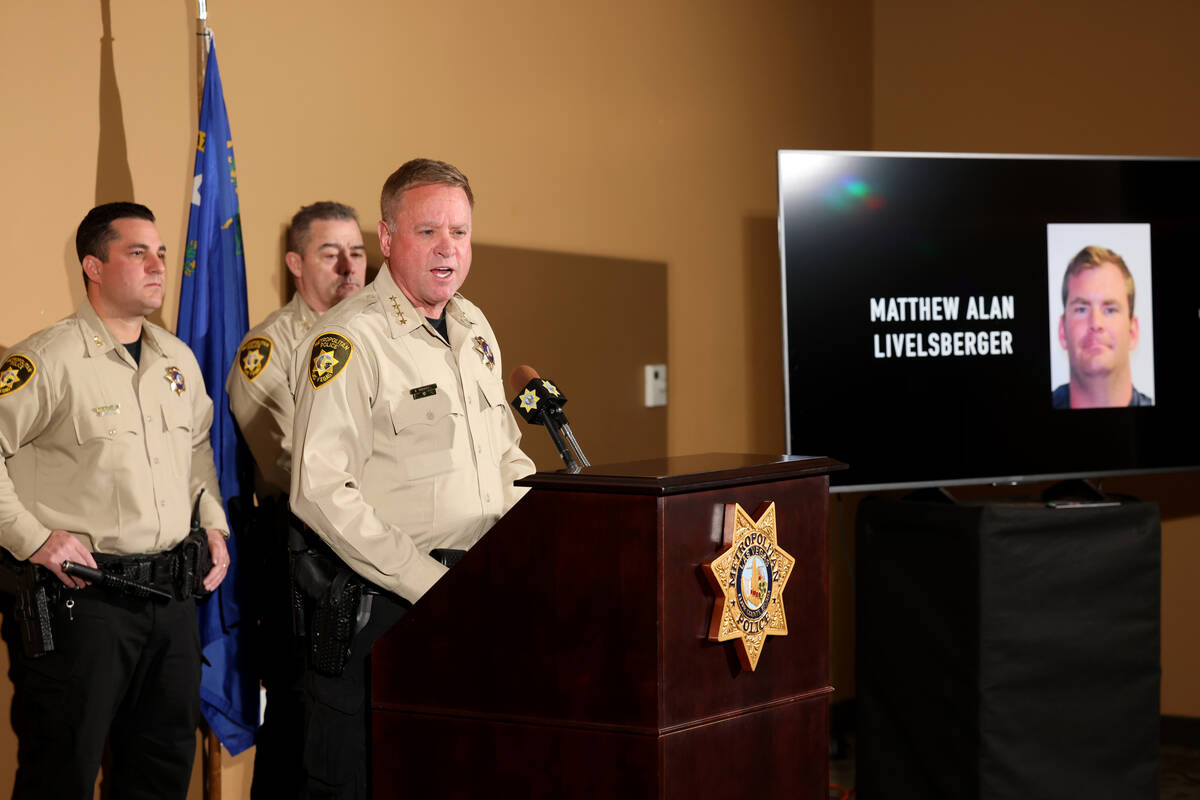What are they hiding? Metro withholds manifesto of Cybertruck bomber
The Metropolitan Police Department punted to the federal government when it came to releasing the manifesto written by Cybertruck bomber Matthew Livelsberger, claiming a number of exemptions but also that federal officials say it contains classified information.
The denial raises questions about what in the manifesto is a secret, especially when Livelsberger alleged that he participated in war crimes during his service in Afghanistan.
Henry Sokolski, the executive director of the Nonproliferation Policy Education Center, a think tank that deals with weapons proliferation, also has written about the government’s tendency to over-classify documents when no sensitive information is involved.
“In your case we could be talking about international law if he did something inappropriate,” Sokolski said after the Las Vegas Review-Journal told him about the denial. “There is as little as possible that is rational in these matters.”
Sokolski said the classification process and any reviews are so flawed that often bureaucrats are classifying documents just to have more control in their offices or protect their jobs. He added that a bill was introduced last year to define what should be classified, but it hasn’t passed.
Before Livelsberger died in the bombing Jan. 1, he sent an email to retired U.S. Army intelligence officer Sam Shoemate alleging that Livelsberger was part of a cover-up of war crimes.
“I have knowledge of this program and also war crimes that were covered up during airstrikes in Nimruz province Afghanistan in 2019 by the admin, DoD, DEA and CIA,” his email said. “I conducted targeting for these strikes of over 125 buildings (65 were struck because of CIVCAS) that killed hundreds of civilians in a single day… The UN basically called these war crimes, but the administration made them disappear. I was part of that cover-up.”
Livelsberger blew up a Telsa Cybertruck that he had rented and filled with makeshift explosives, killing himself and injuring seven other people in front of the Trump Tower in Las Vegas. He told friends he suffered from PTSD, depression and brain injuries from his service as a decorated Green Beret operations sergeant.
When the Review-Journal requested a copy of Livelsberger’s manifesto that investigators said they found on his phone, Metro initially responded that it isn’t the custodian of the record and that evidence isn’t a public record. When pressed, an unidentified Metro public information officer emailed to say federal partners have the document that they say is classified.
“The Department of Defense has exercised control over the manifesto,” the email said. “They have deemed the document classified. The Las Vegas Metropolitan Police Department no longer has legal possession of the document.”
Previously, Metro officials wrote: The “manifesto does not record any public business and thus is not a public record. Instead, it is evidence collected by law enforcement pursuant to an investigation.”
Metro not following the law
Review-Journal Chief Legal Officer Ben Lipman said if Metro has a copy of the manifesto, it is a custodian of the record. He also said documents collected by a government agency like Metro are not immune from the public records law simply because the government may consider the documents to be evidence in an investigation.
Metro did not respond to a Review-Journal inquiry about whether it still has a copy of the manifesto.
Lipman also disputed the contention that Metro could withhold the record because the Defense Department had deemed it classified, saying “the Nevada Supreme Court has ruled that government entities cannot withhold public records simply because another government wants them to be withheld, even if the other government, itself, could withhold the record.”
The Review-Journal filed a Freedom of Information Act request with the Defense Department and FBI, which investigated the crime with Metro police. The FBI acknowledged the request but did not provide a timeframe for a decision on whether to provide the records. Defense officials closed the request, saying the Review-Journal needs to get the documents through the FBI.
Delegation fails to respond
Despite flaws in the state open records law, it is a lot easier to get records from the state than the federal government.
A 2024 U.S. Government Accountability Office report showed that the federal government had a backlog of more than 200,000 FOIA requests and that the percentage processed in 20 days or fewer fell from nearly 40 percent to 14 percent between 2013 and 2022.
The release of manifestos of people involved in mass shootings sparked controversy in other places. News and police groups fought to release the manifesto of the Covenant School shooter in Nashville, but the school and victims’ parents opposed that, saying it could spark copycat attacks and cause suffering for the parents.
A judge ruled that the writings are protected under federal copyright law and that police do not need to release them. That ruling is being appealed, and some of the manifesto was leaked to local media.
The Review-Journal also contacted members of the Nevada congressional delegation to determine whether they have requested or seen the manifesto, but none would comment or respond.
“Things are really crunched,” said Dick Cooper, a spokesman for U.S. Rep Dina Titus, a Democrat who represents Nevada’s 1st Congressional District. “We’re not going to be able to do that.”
The other offices did not respond to emails and calls. Human Rights Watch declined to make someone available for an interview, and a number of professors who study war crimes for universities like Stanford and Georgetown did not respond to repeated requests for comment.
The United Nations human rights office also did not respond to a request for comment.
The “What Are They Hiding?” column was created to educate Nevadans about transparency laws, inform readers about Review-Journal coverage being stymied by bureaucracies and shame public officials into being open with the hardworking people who pay all of government’s bills. Were you wrongly denied access to public records? Share your story with us at whataretheyhiding@reviewjournal.com.
Contact Arthur Kane at akane@reviewjournal.com and follow @ArthurMKane on Twitter. Kane is editor of the Review-Journal’s investigative team, focusing on reporting that holds leaders and agencies accountable and exposes wrongdoing.




















